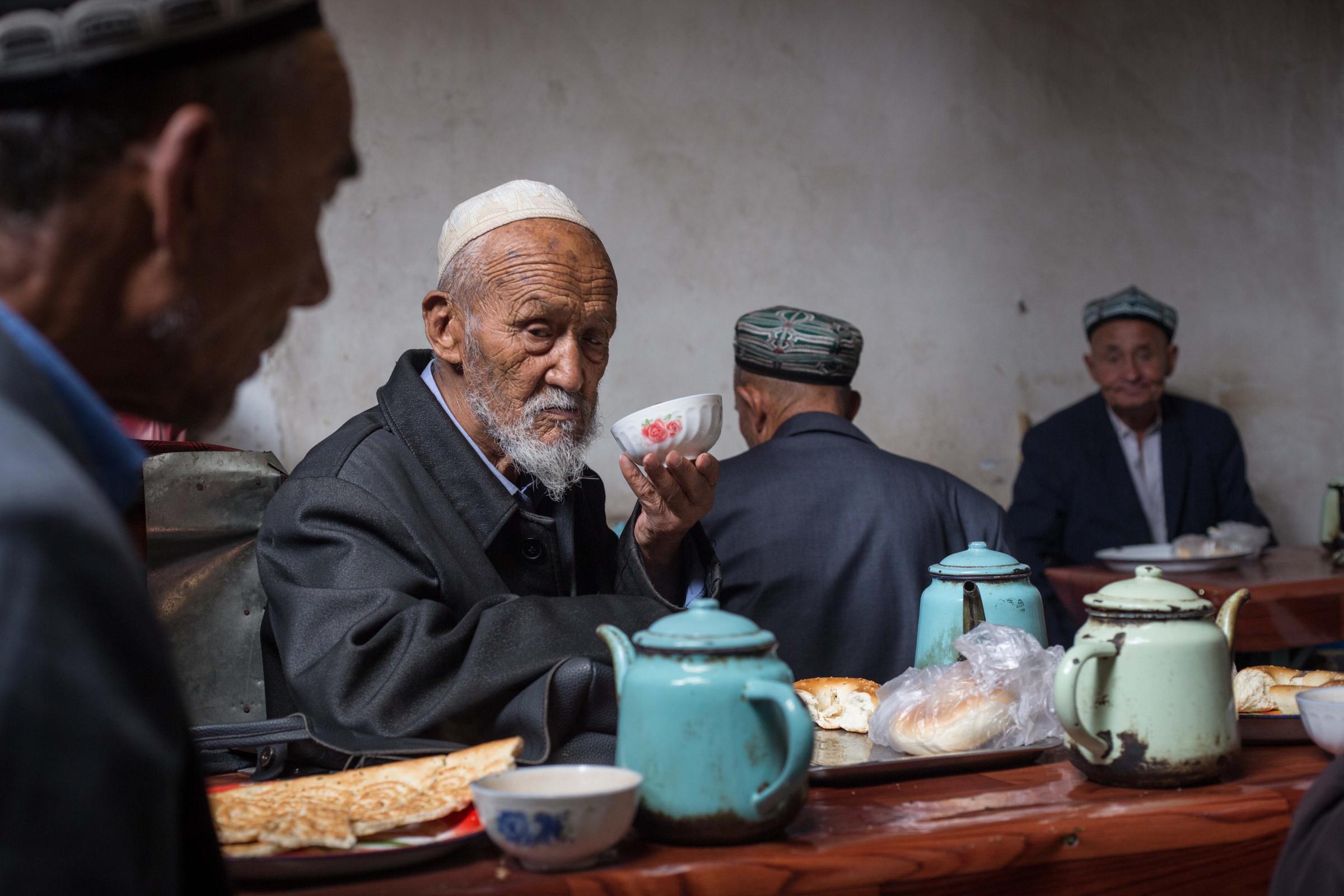Lawmakers are urging Washington to sanction Chinese officials over possible crimes against humanity the same week that Beijing legalized its policy of mass detentions of Uighur Muslims.
In an annual report released Wednesday, the bipartisan Congressional-Executive Commission on China (CECC) said that Beijing’s long-standing repression of the Uighur Muslim minority is worsening.
As many as 1 million Uighurs in the western frontier region of Xinjiang may have been forced into a vast network of detention camps in what the commission calls “the largest incarceration of an ethnic minority population since World War II.”
Until an about face this week, China had denied the large-scale detention of minorities and rejected foreign criticisms as hyperbole. But on Tuesday, Beijing revised a law to formalize the “re-education” of people the state perceives as religious extremists.
The move comes as Washington doubles down on remonstrations over alleged abuses in Xinjiang. Last week, Vice President Mike Pence accused China of trying to “stamp out the Muslim faith” and called for a reset America’s relations with China.
On Friday, Florida Senator Marco Rubio and Rep. Christopher H. Smith, co-chairs of the China commission, plan to introduce a bill that will condemn the Chinese crackdowns in Xinjiang and urge the government to enforce financial sanctions.
As the U.S. takes up the issue of accountability for Xinjiang, here’s what to know about China’s crackdown on its Muslim minority.
Who are the Uighurs?
On the border of Central Asia, the autonomous region of Xinjiang is home to the Uighurs, a primarily Muslim ethnic group who make up around 40% of the frontier region’s 19 million people. Beijing has increasingly imposed discriminatory regulations on the group since Xi Jinping’s rise to power in 2012. Over the years, Uighurs have faced heightened surveillance and increased restrictions, including bans on veils in public, the enforcement of family planning laws and orders to hand over passports.

What’s happening with the camps?
In August, a U.N. committee called Xinjiang a “no rights zone” where it believes China has put more than 1 million Uighurs into internment camps and subjected 2 million more to “re-education” programs.
According to reports from former detainees, inside these centers Uighurs are forced to pledge allegiance to Xi, renounce their faith, learn Mandarin and sing songs to the Communist party, the the Washington Post reports. Torture and deaths are not uncommon, according to an open letter from dissidents.
In a major pivot this week, the Xinjiang government signed the camps into law as “education and transformation organizations” that will stifle Islamic extremism, according to the Post. The revised law marks the first time China has attempted to justify the existence of the extrajudicial detention centers.
What action is the U.S. trying to take?
Rubio and Smith’s bill recommends using the Magnitsky Act “to levy financial sanctions or deny US entry visas” to officials involved in the Uighur abuses.
The legislation is not binding, but would give the Trump administration 120 days to respond with a decision on potential sanctions against human rights violators. Senators invoked the Magnitsky Act earlier this week in the case of Jamal Khashoggi, the Saudi journalist who is presume dead after disappearing inside his consulate in Turkey.
In China, the most likely target would be Chen Quanguo, according to the Financial Times. Chen is the Communist Party Secretary of Xinjiang, and has overseen the mass detentions.
In response to the threat of embargoes, Chinese state media has accused Western countries of getting “worked up like a shrill housewife,” according to the Post.
In addition to pushing sanctions, lawmakers have said they will continue to highlight the situation in Xinjiang by nominating imprisoned Uighur academic Ilham Tohti for the Nobel Peace Prize.
“It is vital that our foreign policy prioritizes the promotion of universal human rights and the protection of basic human dignity, principles the Chinese Communist Party is actively trying to redefine,” Rubio and Smith urged in the opening of the congressional report.
More Must-Reads from TIME
- Where Trump 2.0 Will Differ From 1.0
- How Elon Musk Became a Kingmaker
- The Power—And Limits—of Peer Support
- The 100 Must-Read Books of 2024
- Column: If Optimism Feels Ridiculous Now, Try Hope
- The Future of Climate Action Is Trade Policy
- FX’s Say Nothing Is the Must-Watch Political Thriller of 2024
- Merle Bombardieri Is Helping People Make the Baby Decision
Contact us at letters@time.com